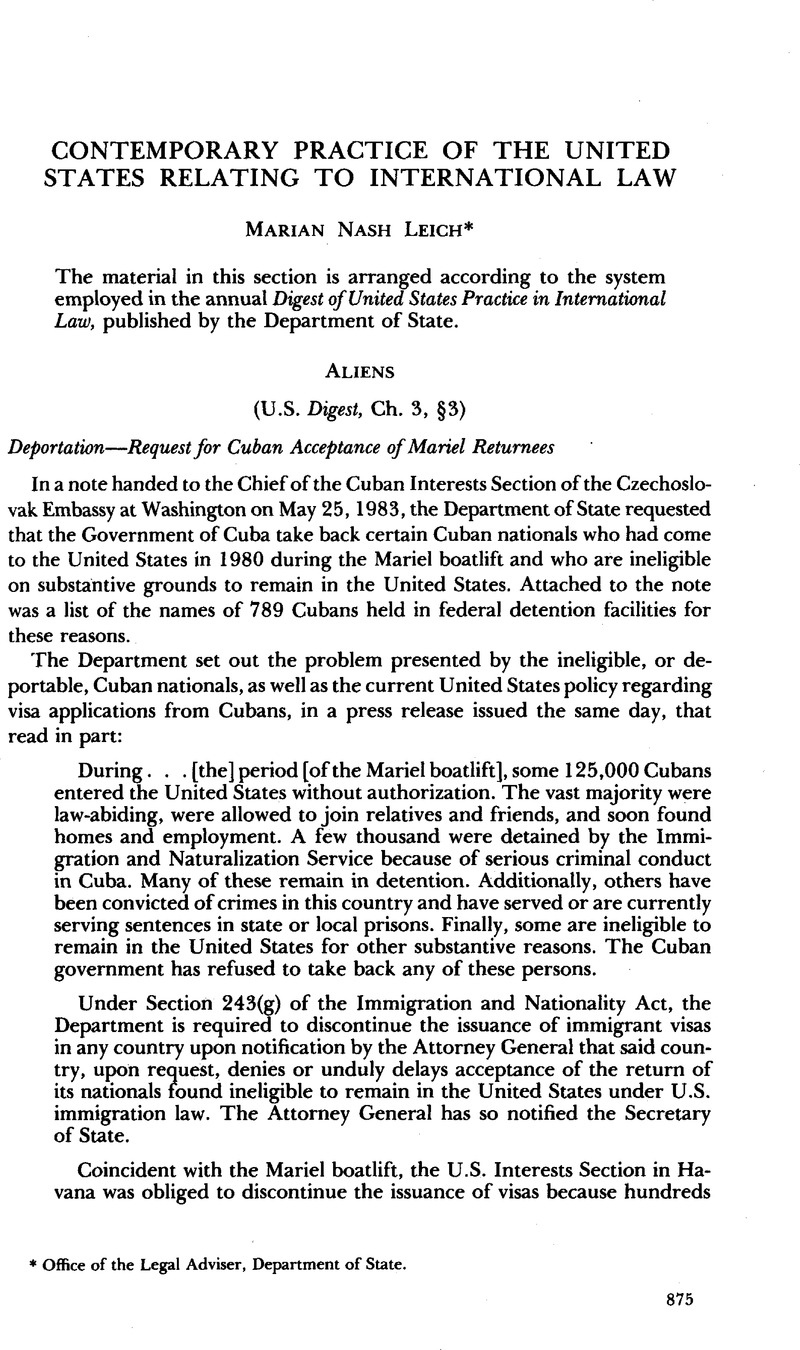No CrossRef data available.
Published online by Cambridge University Press: 27 February 2017

1 See 75 AJIL 144–45 (1981).
2 Dept. of State Press Release No. 192, May 25, 1983.
3 The ruling was issued in Fernandez-Roque v. Smith, Civ. A. Nos. C81-1084A, C81-938A, and C81-1350A (N.D. Ga. July 7, 1983), three consolidated cases, two being class actions, that involved petitions for writ of habeas corpus. See also Fernandez-Roque v. Smith, 91 F.R.D. 117, modified, 91 F.R.D. 239 (1981); Fernandez-Roque v. Smith, 557 F. Supp. 690 (1982); and Soroa- Gonzales v. Civiletti, 515 F. Supp. 1049 (1981).
1 Dept. of State File No. P83 0064–0926. On June 15, 1983, the Cuban Government responded to the request for information with a list of names and sentences extending back over a period of more than 3 years, to April 1980.
On Feb. 15, 1973, the United States and the Republic of Cuba had signed notes incorporating a Memorandum of Understanding on Hijacking of Aircraft and Vessels and Other Offenses (TIAS No. 7579, 24 UST 737, entered into force Feb. 15, 1973), under which each party was obliged to return hijackers of aircraft or vessels to the party of their registry, or to prosecute them in the territory reached. On Oct. 15, 1976, Cuba formally denounced the Memorandum of Understanding, pursuant to the 6–months clause of the agreement, to take effect on Apr. 15, 1977. Cuba had not returned any hijackers pursuant to the 1973 agreement while it was in effect, but it returned two hijackers in September 1980.